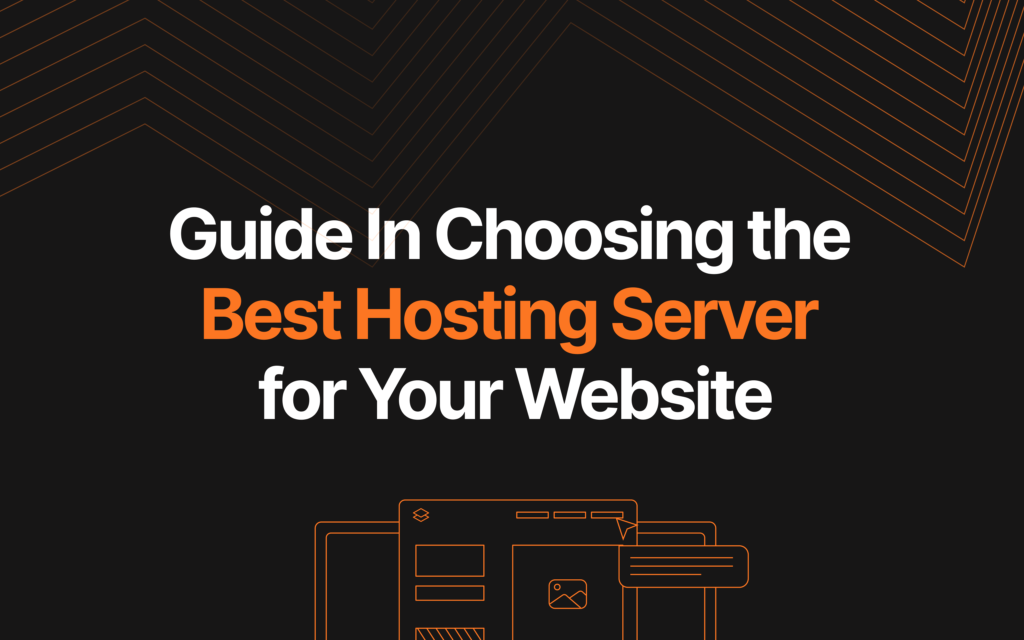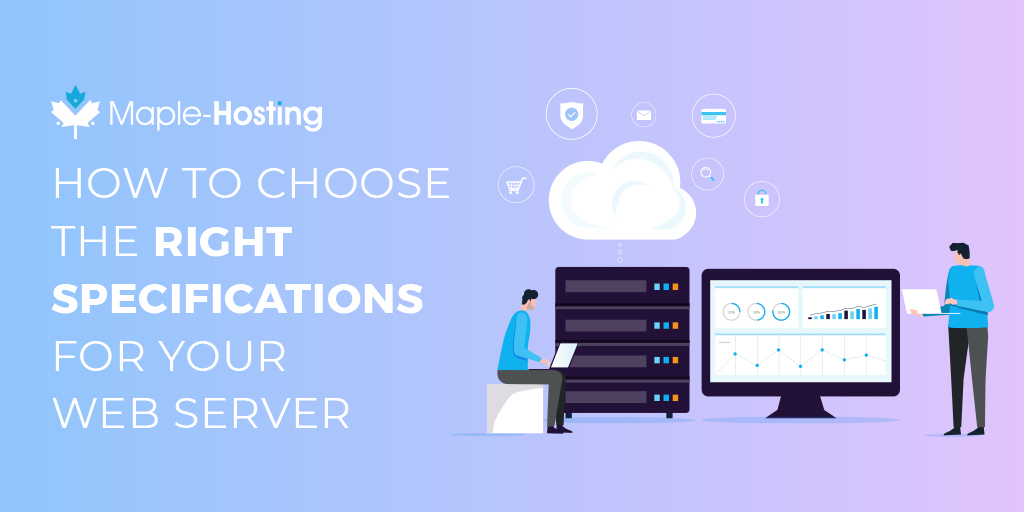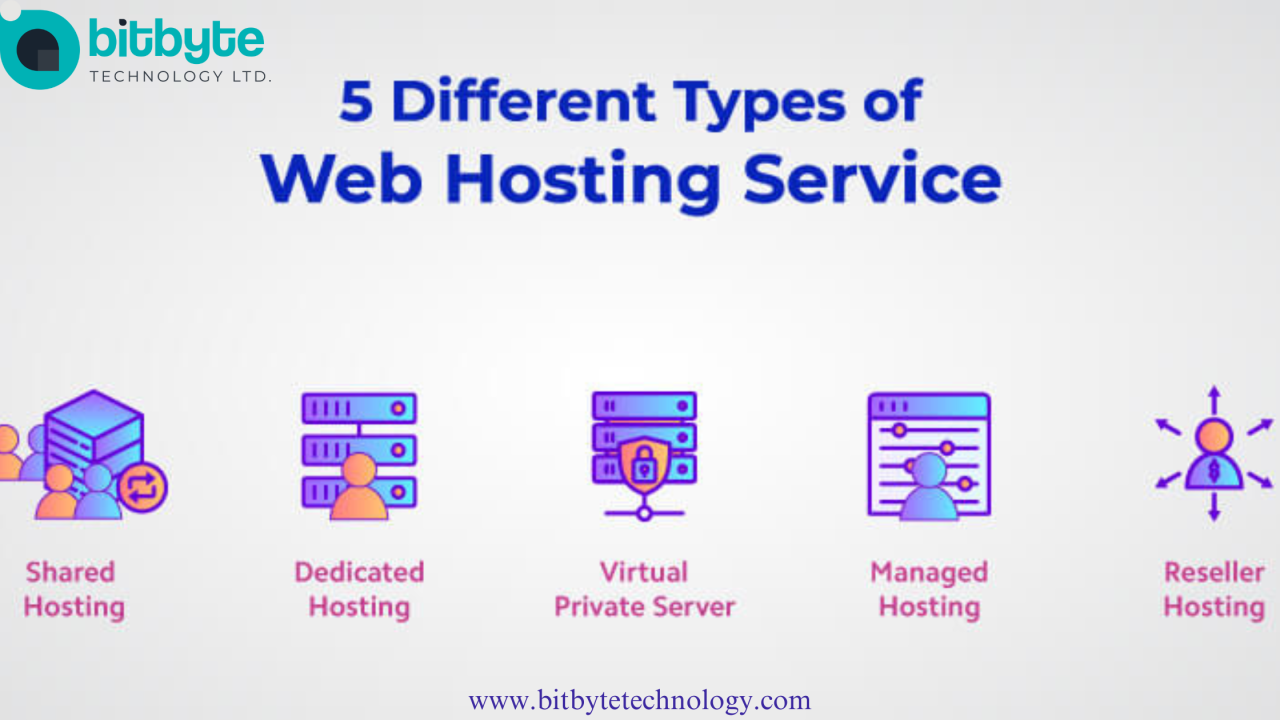How to choose the right server for your website: A Comprehensive Guide

Embarking on the journey of selecting the perfect server for your website can be a daunting task. From considering various factors to understanding the importance of scalability and security features, this guide aims to provide you with essential insights to make an informed decision.
Factors to consider when choosing a server

When selecting a server for hosting your website, there are several key factors to take into consideration to ensure optimal performance and reliability.
Types of servers available for hosting websites
- Shared Hosting: This type of server hosts multiple websites on the same server, sharing its resources.
- VPS (Virtual Private Server): Offers a dedicated portion of a server with customizable resources for better performance.
- Dedicated Server: Provides an entire server for a single website, offering full control and maximum performance.
- Cloud Hosting: Utilizes multiple servers working together to host a website, ensuring scalability and reliability.
Importance of server location on website performance
The physical location of the server can have a significant impact on website performance. Choosing a server location that is closer to your target audience can reduce latency and improve loading times for users accessing your website.
Significance of server resources like CPU, RAM, and storage capacity
Server resources such as CPU, RAM, and storage capacity play a crucial role in determining the performance of your website. A server with adequate resources can handle high traffic volumes and complex applications efficiently, ensuring a seamless user experience.
Determining the scalability requirements

Determining the scalability requirements for a website is crucial to ensure that the server can handle the growth and increased traffic over time. Scalability refers to the ability of a system to handle a growing amount of work or its potential to accommodate growth.
Examples of scalability needs
- A popular e-commerce website experiencing a surge in traffic during holiday seasons.
- A blog that goes viral and suddenly receives a high volume of visitors.
- An online gaming platform launching a new game that attracts a large number of users.
Assessing scalability needs
Before choosing a server, it is important to assess the scalability needs of a website to ensure that it can accommodate future growth. Here are some key factors to consider:
- Expected traffic growth: Analyze the current traffic patterns and predict future growth to estimate the server resources needed.
- Peak traffic periods: Identify peak traffic periods and ensure that the server can handle the increased load during these times.
- Resource scalability: Choose a server that allows for easy scaling of resources such as CPU, RAM, and storage as the website grows.
- Load balancing: Consider implementing load balancing to distribute traffic evenly across multiple servers for better performance and scalability.
- Redundancy and failover: Ensure that the server setup includes redundancy and failover mechanisms to minimize downtime and maintain uptime during high traffic or hardware failures.
Security features to look for in a server
When it comes to choosing a server for your website, security features should be a top priority. The safety of your data and the protection of your users' information are critical aspects that can make or break your online presence.
Here, we will discuss the importance of security features in a web hosting server, list and describe essential security measures like SSL certificates and firewalls, and explore how server security can impact website performance and user trust.
SSL Certificates
SSL (Secure Sockets Layer) certificates are crucial for encrypting data transmitted between a user's browser and your website's server. This encryption ensures that sensitive information such as login credentials, payment details, and personal data remains secure from potential cyber threats.
By having an SSL certificate, you not only protect your users but also establish trust and credibility for your website
Firewalls
Firewalls act as a barrier between your server and malicious entities on the internet. They monitor incoming and outgoing network traffic, blocking any suspicious activity that could compromise the security of your website. A robust firewall system can prevent unauthorized access, DDoS attacks, and other cyber threats, safeguarding your data and ensuring uninterrupted service for your users.
Impact on Website Performance and User Trust
Server security directly influences website performance and user trust. A secure server protects your website from downtime, data breaches, and other security incidents that can harm your reputation and credibility. Users are more likely to engage with a website that is secure and trustworthy, leading to increased traffic, conversions, and overall success.
Investing in robust security features not only safeguards your data but also enhances the user experience, ultimately benefiting your online presence.
Budget considerations when selecting a server
When it comes to choosing the right server for your website, budget considerations play a significant role in the decision-making process. Understanding the costs associated with different types of hosting servers and how budget constraints can influence your choice is essential for finding the balance between cost-effectiveness and the necessary server features.
Cost breakdown of different types of hosting servers
- Shared Hosting: This is the most budget-friendly option where multiple websites share resources on a single server. Costs can range from $2 to $10 per month.
- VPS Hosting: Virtual Private Servers offer more resources and control than shared hosting, with prices typically starting from $20 to $80 per month.
- Dedicated Hosting: With a dedicated server, you have exclusive access to all server resources, but costs can range from $80 to $300+ per month.
- Cloud Hosting: Cloud servers offer scalability and flexibility, with costs varying based on usage and can range from $5 to $1000+ per month.
Influence of budget constraints on server choice
Having a limited budget can impact your choice of server as you may need to prioritize certain features over others. It's important to assess your website's needs and determine which hosting option fits within your budget while still meeting those requirements.
Tips for balancing cost-effectiveness with necessary features
- Identify your website's specific requirements to avoid overspending on unnecessary resources.
- Look for hosting providers that offer competitive pricing without compromising on performance and reliability.
- Consider opting for scalable solutions that allow you to adjust resources as your website grows, preventing the need for immediate costly upgrades.
- Regularly review your hosting plan to ensure you are not overpaying for features or resources that are underutilized.
Conclusive Thoughts

In conclusion, choosing the right server for your website is crucial for its performance and security. By carefully evaluating factors such as server types, scalability needs, security features, and budget considerations, you can ensure that your website operates smoothly and efficiently.
Question & Answer Hub
What are the different types of servers for hosting websites?
There are various types such as shared, VPS, dedicated, and cloud servers, each offering different levels of performance and control.
Why is server location important for website performance?
Server location affects loading speeds and user experience, as closer servers result in faster response times.
What is scalability in web hosting?
Scalability refers to the ability to adjust server resources based on website traffic and growth requirements.
How do security features impact website performance?
Enhanced security measures like SSL certificates and firewalls protect data and boost user trust, positively impacting performance.
How can budget constraints influence server selection?
Budget limitations may require balancing cost-effectiveness with necessary server features to meet website requirements within financial constraints.

